It's crucial to know that students with autism and ADHD need special study strategies. Autism…
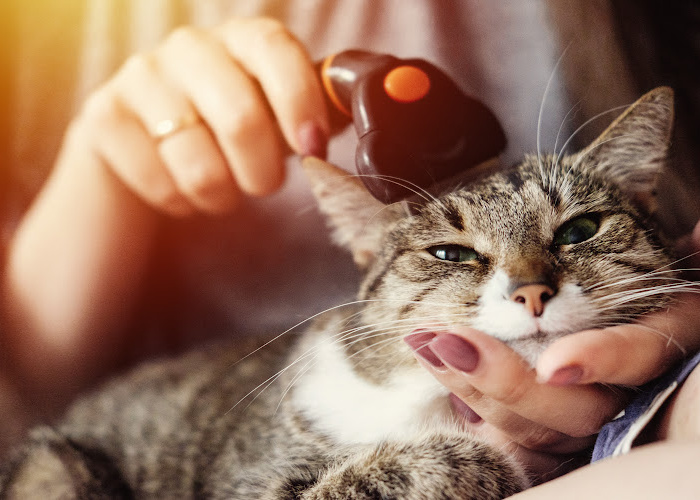
Can Cats Sense Autism? The Truth Behind Your Cat’s Sixth Sense
Have you ever wondered if cats can sense autism or even have autism themselves? This intriguing question leads us to explore the complex world of autism and the role cats play in the lives of autistic individuals.
In this blog post, we will delve into the definition of autism, discuss “can cats be autistic” or sense it, and highlight the benefits cats provide to autistic people.
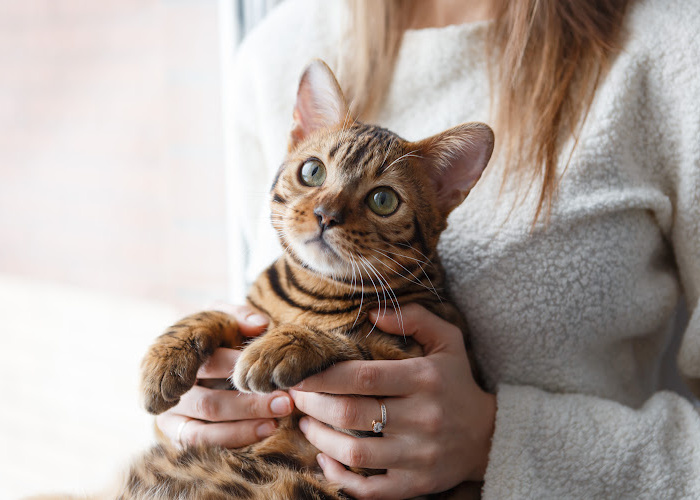
What Is Autism?
Autism Spectrum Disorder (ASD), commonly known as autism, is a developmental condition that affects individuals in diverse ways. It often impacts a person’s ability to communicate and interact, which may include challenges with speaking and understanding language, using nonverbal communication, and engaging in social interaction.
People with autism may exhibit certain behavioral traits like repetitive behaviors and a preference for solitude, which can affect social interaction. Behavior modification techniques are often employed to address these repetitive behaviors and potentially improve social interaction. Sensitivity to loud noises could be one possible reason for this preference for solitude.
It’s crucial to remember that autism affects each person differently, presenting a wide range of potential characteristics. These often include difficulty with social interactions, repetitive behaviors, and sensory sensitivities.
Autism is typically diagnosed in early childhood and is more prevalent among males.
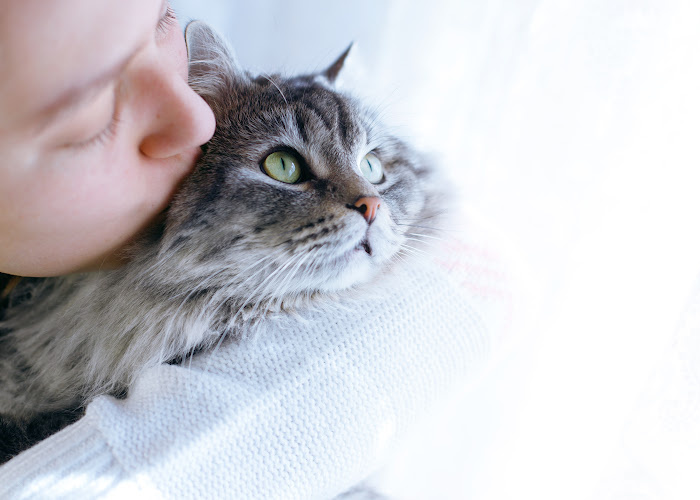
Can Cats Sense Autism?
While the idea of cats being able to sense autism is intriguing, there is currently no scientific evidence to back this claim.
Owning a pet cat, however, can have a significant positive impact on individuals with autism spectrum disorder. This includes benefits such as improved emotional health, the development of a strong bond with the pet, and an increase in empathy.
Cats may pick up on certain behaviors like the avoidance of eye contact, but they are not capable of identifying autism in children or adults. Despite this, the companionship and support a pet cat can provide can greatly enhance the quality of life for individuals with autism.
It’s important to note that not all cats may be suitable companions for individuals with autism. This is due to the unique personalities and needs of each cat.
When choosing a cat for a household with an autistic individual, several factors need to be considered. These include the cat’s temperament, the sensory sensitivities of the autistic person, and the overall home environment.
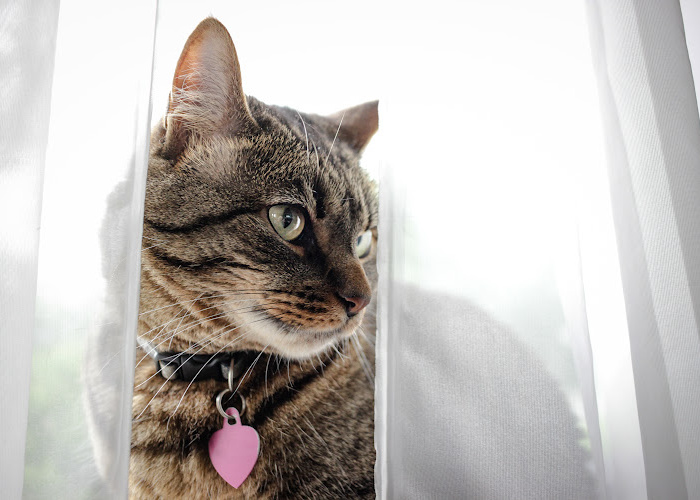
How Can Cats Assist Individuals with Autism?
Pets, and cats in particular, can offer a multitude of benefits to individuals living with autism. These benefits can be broadly classified into two categories: providing emotional support and aiding in skill development.
Emotional Support:
- Cats, being excellent companions, can help alleviate feelings of loneliness.
- They can serve as sources of comfort, helping to reduce stress and anxiety levels.
- The bond that forms between a human and a cat can provide a sense of solace, especially beneficial for those who find social interaction challenging.
Skill Development:
- Interaction with cats can help break down social barriers and stimulate new conversations.
- It can foster social interaction and contribute to the development of social skills.
- It can also aid in the development of sensory and communication skills, promoting interaction with others.
The cornerstone of the beneficial relationship between cats and individuals with autism lies in the comfort and companionship that cats offer. Given that cats lack social signals and appreciate affection, they can be particularly beneficial for people with autism who may find social interaction challenging.
The bond with a cat can provide comfort and support, leading to positive impacts on:
- Social interaction
- Communication
- Behavior
- General wellbeing
In addition to emotional benefits, owning a cat can also instigate significant improvements in an autistic individual’s communication and social skills. Through their interactions with the cat, they can learn to express their emotions and needs more effectively, leading to enhanced interpersonal relationships.
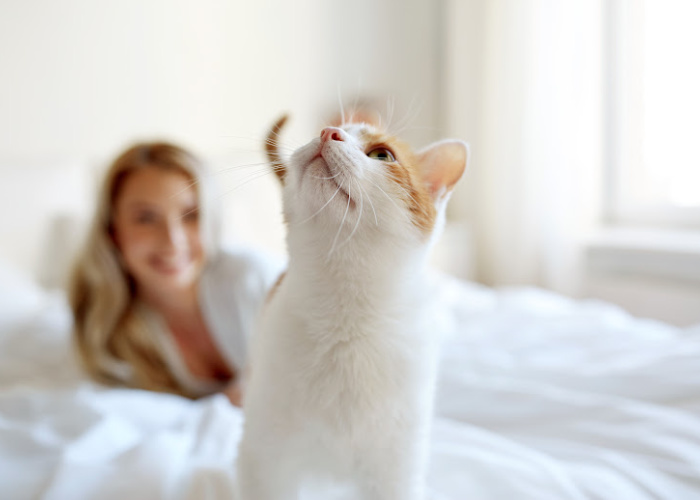
Can Cats Have Autism?
Even though the idea of a cat with autism is interesting, cats can’t actually have autism. However, just like people and other animals, some cats might have special needs or mental challenges due to things like birth defects, illnesses, or accidents.
Cats with these challenges might act in ways that seem like autism in people, but it’s important to remember that cats can’t be diagnosed with autism.
Caring for cats with special needs takes patience and understanding. It’s important to make sure they’re happy and comfortable, just like any other cat. If you love pets, it’s really important to understand this.
Learn More: Can Cats Be Autistic? Interpreting Autism-like Behaviors in Cats.
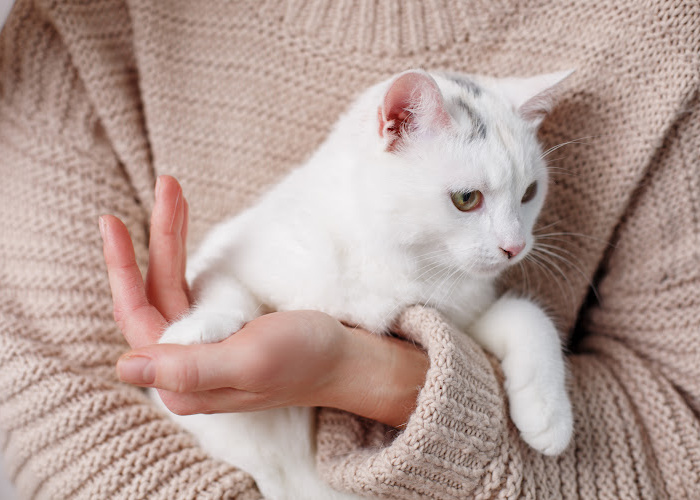
Final Thoughts
While cats may not have the ability to sense or have autism, their presence can have a profound impact on those living with autism spectrum disorder. The bond between an individual with autism and their feline companion can enhance their happiness, improve their social interactions, and foster a sense of empathy and responsibility.
Understanding a cat’s behavior and needs is crucial in nurturing this bond. This understanding can pave the way for a supportive relationship that brings comfort and companionship to individuals with autism. The addition of a pet cat to a household can significantly enhance the quality of life for those with autism and their families, infusing their everyday life with joy and well-being. This is the magic of having a cat around.
Therefore, while cats may not be able to comprehend autism, their ability to provide companionship, emotional support, and life lessons in empathy and responsibility make them invaluable companions for those on the autism spectrum. This is a testament to the remarkable role pets, particularly cats, can play in our lives.
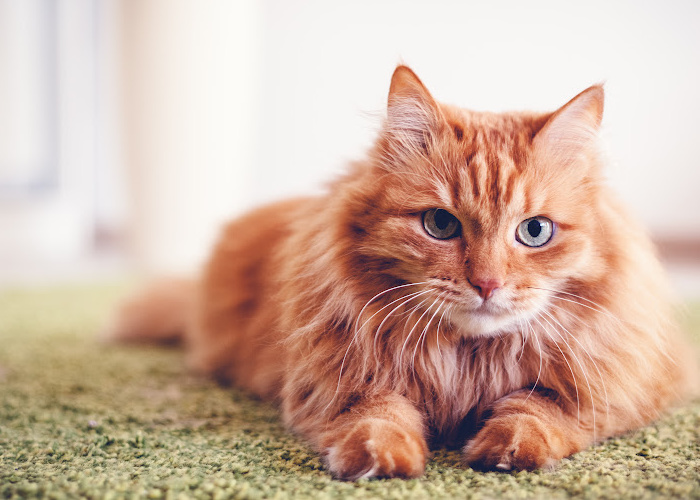
Frequently Asked Questions
In this section, we will answer some of the most commonly asked questions about cats and autism. Let’s dive in!
Can cats sense autism?
There is no scientific evidence to suggest that cats can sense autism specifically. However, cats are known for their sensitivity to their environment and may pick up on different behaviors or emotional states, including those associated with autistic people. This sensitivity, however, doesn’t mean they understand or can diagnose autism in humans.
Are cats good for autistic people?
Yes, cats can be excellent companions for autistic people. They offer a calm and predictable presence, which can be comforting. The non-verbal nature of their communication and their independent lifestyle can be beneficial for those who may find social interactions challenging. Cats can contribute to a happy and healthy life for individuals on the autism spectrum.
Why do autistic people like cats so much?
Many autistic people are drawn to cats due to their calming and independent nature. Cats often do not demand constant social interaction, which can align well with the sensory sensitivities and social preferences of some autistic individuals. Their predictable behavior and affectionate, yet non-intrusive companionship, can be particularly appealing.
What is the best pet for autism?
The best pet for someone with autism varies based on individual needs and preferences. While cats are often favored for their independent and calming nature, other animals like dogs, especially therapy or service dogs, can also be beneficial. It depends on the autistic person’s specific sensory sensitivities, lifestyle, and comfort with animals.
Can Cats Be Autistic?
No, cats cannot be autistic. Autism is a condition specific to humans. While cats may exhibit behaviors that seem similar to autistic behaviors in humans, like repetitive behaviors or sensitivity to loud noises, these are more related to the cat’s individual personality or response to their environment than to autism.
Can animals sense people with autism?
While there’s no conclusive evidence that animals can specifically sense autism, many are adept at picking up on different human behaviors and emotional states. This sensitivity allows them to respond to the needs of autistic people in a supportive manner, though it’s not the same as sensing or diagnosing autism.



This Post Has 0 Comments